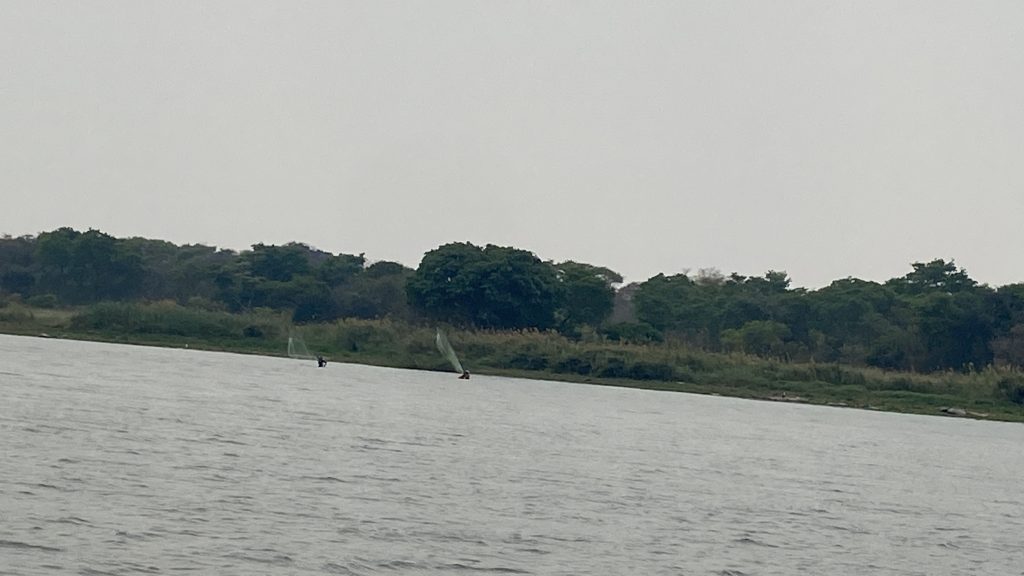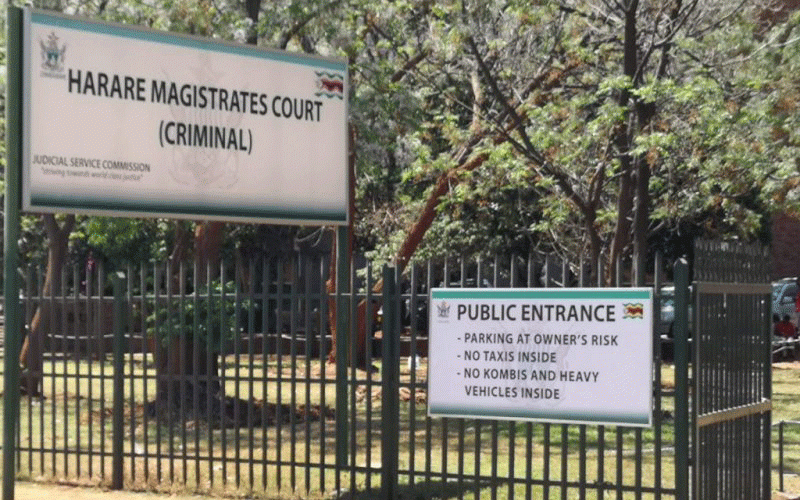By Marshall Bwanya
Harare – The Lake Chivero Ramsar Site, a protected wetland of international significance, is facing mounting threats due to increased human activities.
Originally constructed in 1952 as Lake Mcllwaine and initially designated a national park, Lake Chivero was later reclassified as a recreational park in 1975.
Despite its protected status, the lake continues to be adversely affected by various human activities.
Home to a diverse range of wildlife, including threatened species like the white rhino, Lake Chivero is also a vital habitat for numerous bird species.
Its significance was further recognized in 2013 when it was designated as a Ramsar site, joining a select group of wetlands deemed crucial for global conservation.
However, the lake’s ecological health is under threat from a combination of factors, including deforestation, urban expansion, unsustainable fishing practices, and pollution from the Crowborough sewage system.
A recent tour facilitated by various stakeholders including Harare Wetlands Trust ( HWT) ZimParks, Zvimba Rural District and EMA highlighted the significant risks posed by ongoing human activities within the upstream catchment areas and the immediate vicinity of the Ramsar Site.
The rapid growth of the Greater Harare population has led to increased deforestation, habitat destruction, and pollution.
Urban expansion has resulted in the destruction of headwater wetlands, which play a crucial role in regulating water flows and maintaining water quality.
The aging infrastructure of the Crowborough sewage treatment system has exacerbated the pollution problem, with raw sewage contaminating the Marimba River, a key tributary to Lake Chivero.
Observations on the ground unearthed that deforestation and sand mining within the surrounding buffer zone have also contributed to the degradation of the Ramsar Site.
These activities have led to increased soil erosion, sedimentation, and habitat loss, further threatening the site’s biodiversity.
ZimParks Senior Ecologist, Diana Marewangepo-Chasara expressed concern over the impact of ghost fishing and pollution on fish species and wildlife habitats in Lake Chivero.
“Birds and water monitors are caught on nets.
“There is ghost fishing where fish are killed by broken net pieces that continue to fish on their own.
“Plains game such as impala are sometimes feeding on the waste e.g. plastics, ropes and this disrupts the intestines and they die,” said Marewangepo-Chasara.
ZimParks Principal Ecologist, Gregory Nyaguse, noted that the decline in water quality due to pollution has had a significant impact on fish species.
“Records show that the lake used to have species like Bass and Tiger-fish.
“These species are active hunters feeding on other fish species.
“They hunt by sight so they need clear water to be able to see their prey,” said Nyaguse.
“As the water quality in the lake decreased because of pollution, so did the clarity.
“The water became so dirty reducing the ability of the species to effectively hunt.
“This is one of the factors that led to the demise of these species,” added Nyaguse.
To protect the Lake Chivero Ramsar Site, urgent action is needed to address these threats.
Investigations have revealed that residential development is underway in United Farm, an area situated near Lake Chivero.
Despite lacking necessary approvals, stands ranging from 3,000 to 5,000 square meters are being sold for $US12 per square meter, with a registration fee of $US1,100.
The land is owned by one A Mhazvi, a land reform beneficiary, who had originally received the offer letter for farming purposes.
However, unauthorized residential development is now taking place.
Local authorities, including Zvimba Rural District officials and the Environmental Management Agency (EMA), have denied approving the area for residential use.
HWT education officer Ronald Chirimuuta, warned of the severe negative impact this development will have on Lake Chivero’s ecosystem.
“The proposed development will have a negative impact on Lake Chivero’s ecosystem as this will result in biodiversity loss.
“The loss of this biodiversity will have an impact on the function of the wetlands.
“This biodiversity is crucial in the purification and storage of water underground,” he said.
City of Harare disaster risk management committee has also expressed concerns about increased siltation in Lake Chivero due to developments within its catchment area.
The lake has already lost 20% of its holding capacity due to siltation, and this unauthorized development could exacerbate the situation.
Conservationist and Kuimba Shiri Bird Sanctuary founder Gary Stafford lamented the detrimental impact of housing activities at Unity Farm a sensitive ecological area surrounding Lake Chivero.
Stafford accused the individuals behind the housing projects for being purely driven by profit and completely disregarding environmental damage they are causing.
“The people wanting to do a housing project are in it for the money.
“You can appeal what you want but at the end of the day, can you give him (the developer) as much money as he is going to get from that development.
“They are in it for the bucks, they are not doing this for charity, they are not thinking of tomorrow they are taking a piece of land no matter how important and sell it,” he said.
Stakeholders are calling for sustainable urban planning strategies, improved sewage treatment infrastructure, reforestation efforts, and stricter regulations to prevent illegal activities.
By taking decisive steps, Zimbabwe can safeguard the future of this valuable wetland ecosystem.




